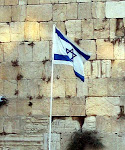Article published in Jerusalem Post April 26, 2010By Judy Siegel-Itzkovich
Israeli cardiology has received an impressive report card from the European Society of Cardiology, whose prestigious European Heart Journal has found that the death rate of hospitalized heart attack patients in Israel is lower than that in 29 European countries. In addition, Israeli acute myocardial infarction patients get balloon angioplasty to open clogged coronary arteries faster than in all the others except Germany.
A few years ago, among all diseases cancer was identified as the biggest killer in Israel, surpassing heart disease, whose mortality rates have declined due to improved medical technology, highly trained cardiologists, greater accessibility and better prevention. Accessibility was increased when the Health Ministry required the health funds to give hospitals a rather generous, set amount per procedure instead of the much lower, per diem hospitalization rate.
 Experts from 30 countries, from Austria to the UK, were asked to report on their own official national statistics, and Israel was represented by leading cardiologists Profs. Alexander Battler, Basil Lewis and Shlomo Behar.
Experts from 30 countries, from Austria to the UK, were asked to report on their own official national statistics, and Israel was represented by leading cardiologists Profs. Alexander Battler, Basil Lewis and Shlomo Behar.
The just-published scientific paper reported that the number of annual Israeli angioplasties (catheterizations in which a tiny deflated balloon is pushed from the groin or arm into the heart to restore blood flow) is 2,726 per million residents – twice that in the US and higher than France and Italy. Only Germany had a higher rate than Israel’s. Just 4.2 percent of patients died in the aftermath of heart attacks in Israeli hospitals, compared to 11.9% in Finland and 13.5% in Italy.
The article also noted that 75% of Israeli heart patients who undergo urgent angioplasties get it immediately rather than the less effective thrombolysis (injection of tPA, which gradually dissolves the clot).
At the same time, the number of new heart attack cases here is similar to the average European rate of 136 per 100,000, the Israel Heart Society reported. The journal showed in its tables that the rate of Israeli residents per catheterization center was 333,500 (there are 22 centers here), which was at an “optimal” level, making this country look good compared to most European countries. Israeli heart attack victims, on average, reach medical care in 90 minutes after the onset of symptoms compared to twice that in Belgium and Greece.
The heart society’s president, Prof. Gad Keren, and secretary-general Prof. Doron Zager said they were proud that the mortality rate from heart attacks in Israel is among the lowest in Europe. “It reflects upon years of research and hard work by cardiology departments around the country, as well as the health system’s correct investment in catheterization labs. To preserve this achievement for the future and even to improve on it, we must continue to invest many resources in research, manpower and equipment to deal with heart attacks. This investment has proven itself as saving lives,” they concluded.
Article published on CrownHeights.info April 23, 2010Wineries in Judea and Samaria shone at the annual Eshkol Hazahav wine competition this year, taking a total of seven awards. A total of 251 wines were submitted to the competition, and were judged by dozens of experts in a blind taste test.The Hararei Kedem winery in Yitzhar was particularly successful, taking two gold medals and one silver. Hararei Kedem's winning wines were a Merlot, a Cabernet Sauvignon, and a Cabernet-Merlot blend. Hararei Kedem is a unique winery for several reasons. Not only does owner Ariel Ben-Sheetrit use Jewish labor, instead of hiring foreign workers as many do, but the wines he creates are entirely organic. In addition, Ben-Sheetrit observes the shemittah (Sabbatical) year, allowing his fields to lie fallow once every seven years.
Hararei Kedem is a unique winery for several reasons. Not only does owner Ariel Ben-Sheetrit use Jewish labor, instead of hiring foreign workers as many do, but the wines he creates are entirely organic. In addition, Ben-Sheetrit observes the shemittah (Sabbatical) year, allowing his fields to lie fallow once every seven years.
Ben-Sheetrit was given an opportunity to address the audience after winning, and he used the opportunity to tell the hundreds of assembled winery owners, wine experts, journalists and tourists that he credits his success to his observance of the shemittah year, and to the fact that his grapes are grown in the portion of the land of Israel belonging to the biblical Joseph (Yosef), who is buried a short distance from Yitzhar.The grapes that created his winning wines were grown in the year before the shemittah year, after he had decided to let the land lay fallow the next year despite agricultural experts' attempts to dissuade him, Ben-Sheetrit related. In that year, 2007, the year before the shemittah year, his vineyard produced three times the usual quantity of grapes."It was truly a fulfillment of the words of the Torah, that the land will give enough for the sixth, seventh, and eighth years,” he declared. The grapes were special in terms of quality as well as quantity, he added, as indicated by the prize-winning wines they produced.The Pesagot winery won three medals as well, and Yekev Gevaot of Givat Harel won a single medal, which join the two gold medals it won last year.The wine industry in Judea and Samaria has flourished in recent years. Wineries in the region have won awards in Israel and abroad, and have drawn tourists from around the world.
Article published on Ynetnews April 17, 2010
Museum of Science fair in May to highlight groundbreaking developments being made by Israelis, Israeli institutions in clean energy, medicine, and technology
A weekend of programming showcasing Israeli innovation will culminate at 9 am on Sunday, May 2, during a technology fair at the Museum of Science in Boston. The fair – co-sponsored by the Consulate General of Israel to New England – will include addresses by Prof. Peretz Lavie, president of the Technion-Israel Institute of Technology; Dr. Rafael Beyar, CEO and Director General of Rambam Health Care Campus; Michael Granoff - Better Place; and many others.
The event will highlight the groundbreaking developments being made by Israelis and Israeli institutions in clean energy, medicine, and technology. Visitors will be able to see Israel's progress on its plan to be the first country to have a majority of electric cars on its roads; efforts to be a pioneer in solar and wind energy; and thriving innovative economy.
Educational exhibits will be sponsored by the following Israeli universities and institutions: The Technion-Israel Institute of Technology; Rambam Medical Center; Hadassah Medical Center; New England-Israel Business Council; Jewish Heart for Africa; Bloomfield Science Museum; and South Area Solomon Schecter Day School.
The Alan J. Tichnor Memorial Event will conclude on Sunday evening at 7:30 p.m. at Congregation Mishkan Tefila with a keynote panel discussion on the future of Israeli innovation and technology, featuring senior leadership from Israeli universities and moderated by Dan Senor, Author of Start-up Nation; The Story of Israel's Economic Miracle. The discussion will include greetings from the academic community delivered by Dr. Jehuda Reinharz, President of Brandeis University.
 Experts from 30 countries, from Austria to the UK, were asked to report on their own official national statistics, and Israel was represented by leading cardiologists Profs. Alexander Battler, Basil Lewis and Shlomo Behar.
Experts from 30 countries, from Austria to the UK, were asked to report on their own official national statistics, and Israel was represented by leading cardiologists Profs. Alexander Battler, Basil Lewis and Shlomo Behar.












